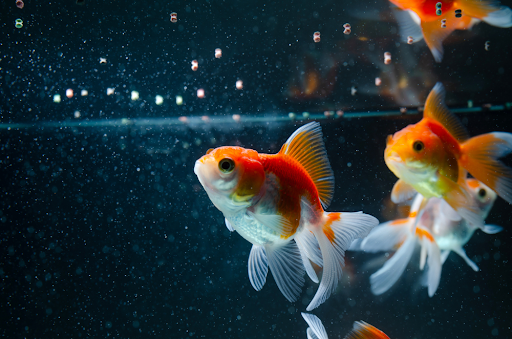Choosing the right fish food is crucial for ensuring the optimal growth and health of your aquatic pets, especially when breeding is involved. The proper nutrition supports not only the health of the adult fish but also the successful development of their offspring. In this guide, we’ll explore how to select the best fish food for breeding and growth, offering tips and insights to help you provide a balanced diet for your fish.
Understanding Nutritional Needs
Fish food is designed to meet the dietary requirements of various fish species, and selecting the right type can significantly impact their growth and reproductive success. For breeding fish, the nutritional demands are even higher. A balanced diet should provide essential proteins, fats, vitamins, and minerals that promote overall health and reproductive capabilities.
1. Protein Content
Proteins are fundamental for the growth and development of fish, particularly during breeding periods. High-protein fish food helps in building muscle mass and supporting the energy levels required for spawning. Look for fish food with a high percentage of quality protein sources, such as fish meal, shrimp, or krill. For breeding fish, a protein content of at least 40-50% is often recommended.
2. Essential Fatty Acids
Fatty acids, particularly omega-3 and omega-6, play a critical role in the health of fish and their eggs. These nutrients support brain development, enhance immune function, and improve overall vitality. Choose fish food that contains added fish oils or algae, which are rich sources of these essential fatty acids. Ensuring that your breeding fish receive these nutrients can lead to healthier offspring and more successful breeding cycles.
Types of Fish Food for Breeding
Different types of fish food cater to various needs, and selecting the right type is essential for optimal breeding and growth. Here are some popular options:
1. Pellets
Pellets are a common choice for fish food due to their convenience and nutritional density. High-quality pellets designed for breeding fish often have a higher protein content and added nutrients to support reproductive health. Ensure the pellets are appropriately sized for your fish to avoid overfeeding or underfeeding.
2. Flakes
Flakes can be a good option for some fish species, especially those that prefer a surface-feeding diet. However, flakes may not always provide the same level of nutrition as pellets. For breeding purposes, it’s crucial to select high-quality flakes that contain balanced nutrients, and you might need to supplement them with other forms of fish food.
3. Live and Frozen Foods
Live and frozen foods, such as brine shrimp, daphnia, and bloodworms, are excellent for providing additional nutrients and stimulating natural feeding behaviours. These foods are particularly beneficial for young fish and breeding pairs, as they offer variety and high nutritional value. Incorporating live or frozen foods into your fish food regimen can enhance growth and reproductive success.
Supplementing with Poultry Food
While fish food should be the primary source of nutrition for your fish, sometimes supplementing with poultry food can provide additional nutrients. Poultry food, particularly certain types of mealworms or crickets, can offer extra protein and vitamins that may be beneficial for breeding fish. However, this should be done cautiously and in moderation, as poultry food is not a substitute for fish-specific diets.
Monitoring and Adjusting Diet
Regularly monitoring the health and growth of your fish is essential to ensure they are receiving adequate nutrition. Observe their behaviour, growth rates, and reproductive success to determine if adjustments to their diet are needed. If you notice any signs of nutritional deficiencies or imbalances, such as poor growth or irregular spawning, consider consulting with an aquatic nutritionist or adjusting the fish food formulations.
Maintaining a Balanced Diet
Providing a balanced diet is crucial for the long-term health and breeding success of your fish. Ensure that the fish food you select is formulated to meet the specific needs of your fish species and their breeding requirements. A well-rounded diet that includes a mix of high-quality pellets, flakes, live or frozen foods, and occasional supplements will support optimal growth and reproductive health.
Conclusion
Choosing the right fish food for breeding and growth involves understanding the nutritional needs of your fish and selecting foods that meet those requirements. High protein content, essential fatty acids, and balanced nutrients are key factors in supporting successful breeding and healthy development. While fish food should be the primary source of nutrition, occasional supplementation with poultry food can offer additional benefits when done appropriately. By providing a well-balanced diet and monitoring your fish’s health, you can ensure that your aquatic pets thrive and achieve their full potential.




